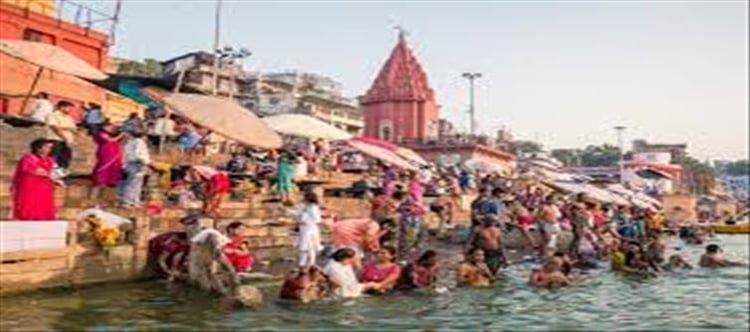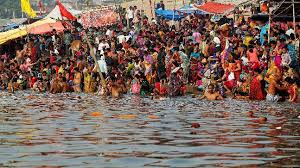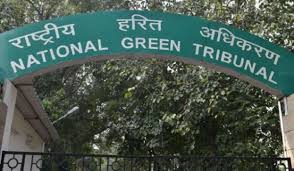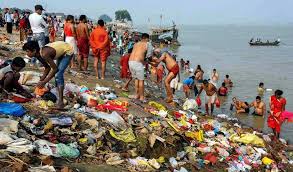
NGT bans bathing in ganga after pollution exceeds maximum tolerance. The National Green Tribunal has asked people not to bathe in the Ganges. The demand has come as a shock, shattering the age-old belief that taking a bath in the ganga, known as the sin-absorbing ganga, is superior to bathing in the nation's holy rivers. In a country where there are various religious beliefs about Kashi ganga, such as bathing in the ganges, sins being removed, and moksha if you die in Kashi, it is shocking to be told not to bathe in the Ganges. But if we know the background of this, it will be understood that it is we, the people, who have overcome the extreme tolerance of ganga, which removes sin. But the entire stretch of the ganga in West bengal has high faecal coliform, making the ganga water unfit for bathing, the tribunal said. Also, the tribunal pointed out that 258.67 million liters of sewage are directly mixed in the river ganga without treatment every day and warned the authorities that there will be fines if there is no progress in dealing with the pollution in the river.
 The NGT was investigating issues related to prevention, control, and mitigation of river pollution across the state including the districts where the river ganga and its tributaries flow. The National Green Tribunal was also evaluating the report submitted in the State of West bengal as per its earlier guidelines. A bench headed by NGT president Justice Prakash Srivastava heard the reports filed by the district Collectors of North 24 Parganas, Murshidabad, Nadia, Malta, Hooghly, Purba Pardaman, Howrah, Purba Medinipur and South 24 Parganas.
The NGT was investigating issues related to prevention, control, and mitigation of river pollution across the state including the districts where the river ganga and its tributaries flow. The National Green Tribunal was also evaluating the report submitted in the State of West bengal as per its earlier guidelines. A bench headed by NGT president Justice Prakash Srivastava heard the reports filed by the district Collectors of North 24 Parganas, Murshidabad, Nadia, Malta, Hooghly, Purba Pardaman, Howrah, Purba Medinipur and South 24 Parganas. The session stated that it is regrettable that adequate facilities have not been set up to treat the sewage generated daily and that there is no time frame to achieve a 100 percent target in sewage treatment. Last week (February 21), the order passed by the National Green Tribunal said that it was shocking that some districts like Purba Medinipur did not have even a single sewage treatment plant. The reports submitted by the district Collectors were not satisfactory. The bench said it was shocked to find that 258.67 million liters per day (MLT) of untreated sewage was flowing directly into the ganges in West Bengal.
The session stated that it is regrettable that adequate facilities have not been set up to treat the sewage generated daily and that there is no time frame to achieve a 100 percent target in sewage treatment. Last week (February 21), the order passed by the National Green Tribunal said that it was shocking that some districts like Purba Medinipur did not have even a single sewage treatment plant. The reports submitted by the district Collectors were not satisfactory. The bench said it was shocked to find that 258.67 million liters per day (MLT) of untreated sewage was flowing directly into the ganges in West Bengal. The National Green Tribunal has directed the Collectors of the nine upstream districts of the river to set a deadline for achieving the target of 100 percent treatment of sewage generated every day. The tribunal said district collectors should report how and to what extent the funds received under the National Mission for Clean ganga (NMCG) have been utilized, apart from steps taken to delineate floodplains in their districts.
The National Green Tribunal has directed the Collectors of the nine upstream districts of the river to set a deadline for achieving the target of 100 percent treatment of sewage generated every day. The tribunal said district collectors should report how and to what extent the funds received under the National Mission for Clean ganga (NMCG) have been utilized, apart from steps taken to delineate floodplains in their districts.The tribunal also ordered that an efficiency audit should be conducted in each district on waste generation and treatment and the level of pollution in the river. No progress has been made in any district of the state of West bengal in measures to reduce pollutants in the river Ganga. But in a subsequent report, the tribunal said it had no option but to impose environmental compensation if adequate progress was not shown. The bench also directed the district administrations concerned to file fresh reports within eight weeks and adjourned the matter to May 2.




 click and follow Indiaherald WhatsApp channel
click and follow Indiaherald WhatsApp channel